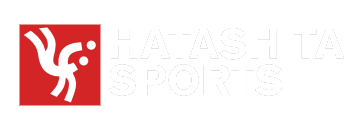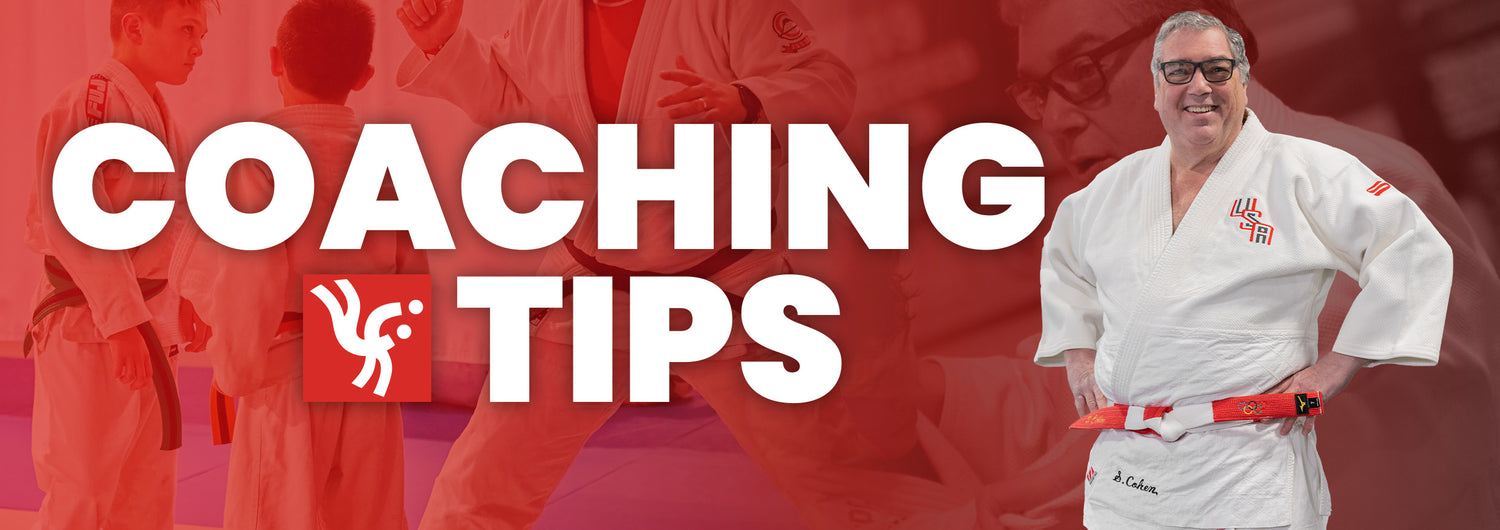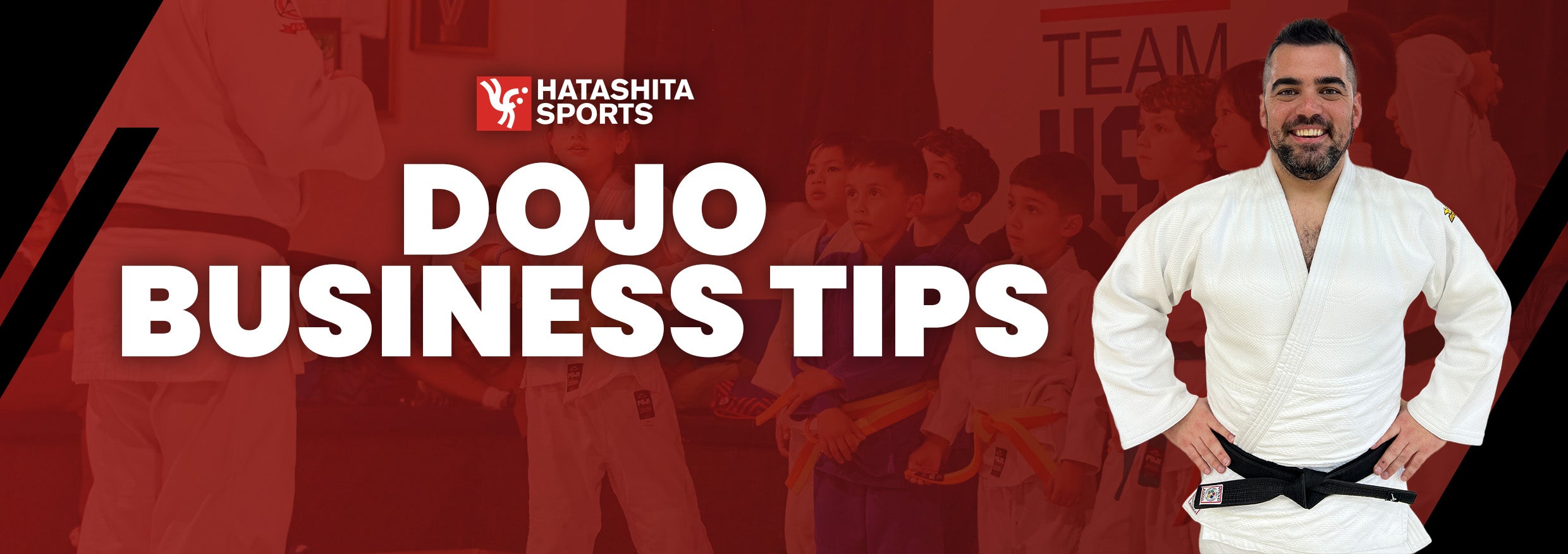Guest Blogger: Steve Cohen - 1988 US Olympian, 2000 US Olympic Coach and Head Coach of American Judo System
Today in the United States developing a judoka is very difficult. As National Federation we don’t have mandatory competitions and training camps for our top athletes to attend. For those who do set themselves a schedule and plan for success as they are looking for a way to qualify on the World Ranking List (WRL), those individuals must spend their time fighting and training overseas (Europe, Asia, South America, etc.) because the level of judo required to be on the WRL is nearly impossible to find in the United States. However, because of this we, as a country, indirectly keep our B & C level seniors along with our Junior & Cadet athletes from the necessary exposure to our number one athletes and coaching needed to achieve success on the World Judo stage. Our up and comers don’t compete against them; don’t get to watch them compete and they don’t get to train with them at camps.
How To Deal With This Challenge
We must change our mentality in our country from, "this is my student, to this is our student." There is a local judo mentality among some judoka in the United States where one dojo is the enemy (not a competition rival but have firm disdain for each other) of another club. Like world politics, the only ones who suffer here aren't the big governments (the dojos) it's the people (the judoka) as neither group of judokas get the exposure they need and could benefit immensely from. This is a recipe for disaster. If you look at the European Judo Union (EJU) and all of the countries they oversee, all support "European Judo". Some months have 3 - 5 IJF Senior & Junior/Cadet tournaments and training camps in a two-month period where they compete and then attend a 300+ person training camp immediately after - and then do it again the next weekend! If you ever watch European spectators, they know judo and want to see EUROPE win. Meaning If my country’s athletes can’t win, I want yours to win. They train together and work together. There is a reason they medal so consistently. We as judoka in the United States must change our mentality if we want to win.
How To Get Better
We have some great coaches in the United States, at every level and we need to use them. Throw your ego out the door and use the great assets we have here on our home soil. For example, I consider myself to be a successful coach based on the results of my students and I believe one of my biggest strengths as a coach is finding the best coaches to help me develop my athletes. I can teach my athletes to win in newaza but Jimmy Pedro is one of the best newaza coaches in the world. I can teach my athletes how to do uchimata but Jason Morris is one of the best tacticians and technicians in the world. They are both American Coaches that want Americans to win. Why wouldn’t I have my athletes learn from them? They are on the mats every week; their doors are open and they are eager to help. My students learn from these coaches because I want AMERICA to win. I have no ego...
Learning from Watching Judo
When I was competing and coaching the only way to see footage was to have someone film it and mail you the tape OR buy a tournament replay from Fighting Films or however else you could get it. Judoka now have so many resources when it comes to WATCHING judo - as a fan, a coach, or an athlete. Between social media, JudoTV, the IJF and YouTube, we get to watch judo highlights and event replays on these platforms for a wildly low price or for free. But if we are truly trying to learn, we really need to WATCH the footage. I understand why you enjoy watching the flashy ippons and turnovers on social media. I enjoy it too, but this is for fun and not for learning. For learning I recommend athletes purchase a pass to JudoTV, the IJF event and video platform where you can watch all levels of competition from Cadet, Junior, and Senior level competitions.
As an athlete or coach, you can watch the competition live or watch the replay on video of the matches of your choice. The levels vary from average to elite. This is a great way to learn what the current competition is doing and what is trending on the international stage. If you are watching as a coach, then you need to be on the lookout as to why techniques or throws are not being executed properly. The only thing I do not recommend is only watching the studs such as but not limited to Hifumi Abe, Uta Abe, Joshiro Maruyama, Christa Deguchi and other top ranked superstar athletes and expect to really gain any new knowledge. Imagine if young football players ONLY watched Tom Brady and watched NOTHING in terms of development or High School and College quarterbacks. Of course, you'll see the highest level of the sport but not all of the things put in to be at that level.
CONCLUSION
The WORLD of Judo is growing but it appears at times to be shrinking in the United States. We have to look and follow trends of other successful programs if we want to contend with the best in the world. It’s time for us to change our mentality and work together if we are going to be competitive.
Steve Cohen
US Olympian & US Olympic Coach
Head Coach, American Judo System
Please email me at Steve@americanjudo.com with any questions, comments, or topics you may want me to cover.
About Steve Cohen
Steve Cohen has been doing judo for over 60 years. Starting judo at the age of 5, Steve had a long successful competitive career ending in 1988 at the Seoul, Korea Olympics. Steve along with his brother, Irwin ran a successful judo program in Illinois producing the first Olympic Silver Medalist and first Junior World Champion for the United States. They also had many athletes on Pan American Games Teams, World Teams, and Olympic Teams. Throughout the years they ran local, regional, and national tournaments. Every Summer, they held a camp where the best youth and junior judo athletes in the country would come to learn and develop, and the best senior judo athletes would attend, teach, and train. Many of those young athletes that attended went on to great success as competitors. Steve became the National Coach for the United States in the 1990’s becoming the Head Junior National Coach for 4 years and following that became the Head Senior National Coach which included being named the Head Coach for the 2000 US Olympic Team. Steve is still active in coaching and developing athletes out of Illinois and works with athletes all over the country as the Head Coach for the American Judo System.




Leave a comment
This site is protected by hCaptcha and the hCaptcha Privacy Policy and Terms of Service apply.